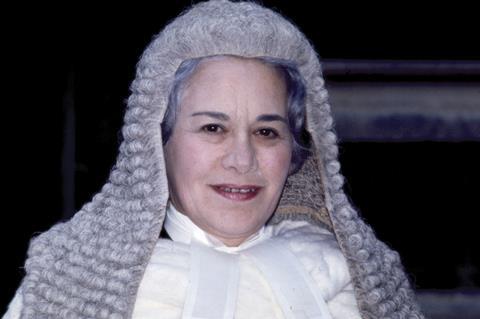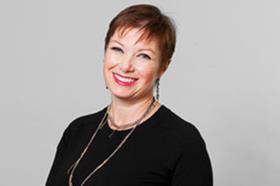This year marks the 50th anniversary of Rose Heilbron's as the first woman judge at the Old Bailey, an occasion marked by an online event organised by the First Hundred Years project that included Heilbron’s daughter Hilary Heilbron QC and the lord chief justice Ian Burnett QC.
The Bailey was one of many ‘firsts’ Rose Heilbron achieved. Opinion divides on whether such status compels the subject to be a role model, though talking through that question with Baroness Scotland, when attorney general, and with the outgoing general counsel of the World Bank, Sandie Okoro, I found both thought you have no choice. You are, they argued, a role model whether you like it or not – it’s best to accept that and try to rise to the occasion.
Still, it is not a given that by being ‘first’ someone clears the way for others to follow. But all speakers pointed to ways in which Heilbron did just that, by tackling obstacles and subjects head-on.

Former Court of Appeal judge Sir Christopher Rose was first led by Heilbron as a junior, and later became a judicial colleague. He knew her for 40 years.
Sir Christopher recalled not just an impressive lawyer, but one who had to confront discriminatory practices. On taking silk in 1949, aged 34, she needed permission from the Northern Circuit to remain resident in the area with her husband and daughter – a circuit rule assumed it was in the circuit’s interest for its silks to make its influence felt by being resident in London.
Even before the war, and before becoming a parent, panel discussion member professor Jo Delahunty reminded the audience, Rose Heilbron had tackled the issue of career and family life, and work-life balance, head on.
In 1939, on becoming Britain’s youngest woman barrister, Heilbron told the Daily Express: ‘I am no blue stocking. The general impression of a woman lawyer seems to be a sober old maid. I have not adopted the law as a hobby. I am serious about my career, but that does not mean I shall give up dancing, swimming, golf or tennis. Legal problems will not keep me from other jobs. I love-housekeeping and gardening. When I marry I intend to continue as a barrister. I have many men friends. Some have possibly fallen in love with me, but I have no plans for marriage. I am not in love. That does not mean I am sacrificing my life for my career. I am a home lover.’
She was appointed a Recorder at Burnley in 1956 and the first woman to be appointed a commissioner of assizes by the lord chancellor in 1962.

When she first sat at the Old Bailey as a Recorder in 1972, it made the news. The Liverpool Daily Post noted the fact that Heilbron was still, ‘imprisoned by masculine curiosity. The gossip columnists see more interested in finding suitable adjectives for her smile at prosecuting counsel - it is enough to strain the quality of anyone’s mercy’.
Despite being the third youngest King’s Counsel ever appointed, her daughter noted, many other milestones in Rose Heilbron’s career came later than they did for many male colleagues. And when appointed to the High Court in 1974, despite her experience in criminal law, it was to sit in the family division.
Another panel member, Old Bailey judge Wendy Joseph QC, was able to reflect on slow progress for the women who followed Rose Heilbron, followed by more rapid improvement.
Arriving at the Bailey in 2012, Joseph was only its third woman judge. ‘There was more equality in the cells,’ Joseph noted.
Yet, in 2021 women, for the first time, were half of all Old Bailey judges, and of the 163 the new Recorder appointments announced this week, 48% were women.
My thanks to professor Jo Delahunty QC for providing the full press quotes used in this article. For more information on First Hundred Years project, see https://first100years.org.uk/about-us/




































3 Readers' comments